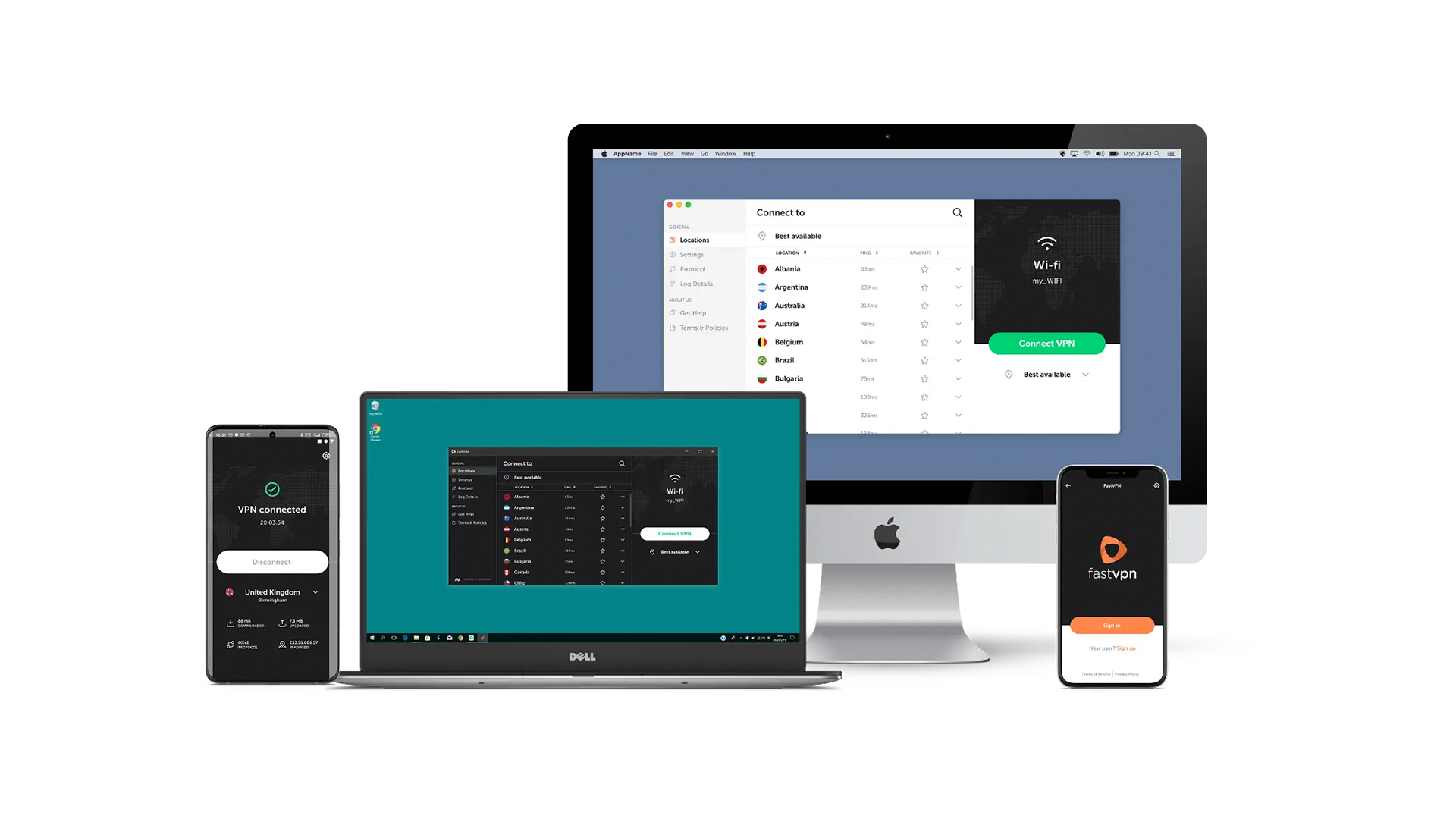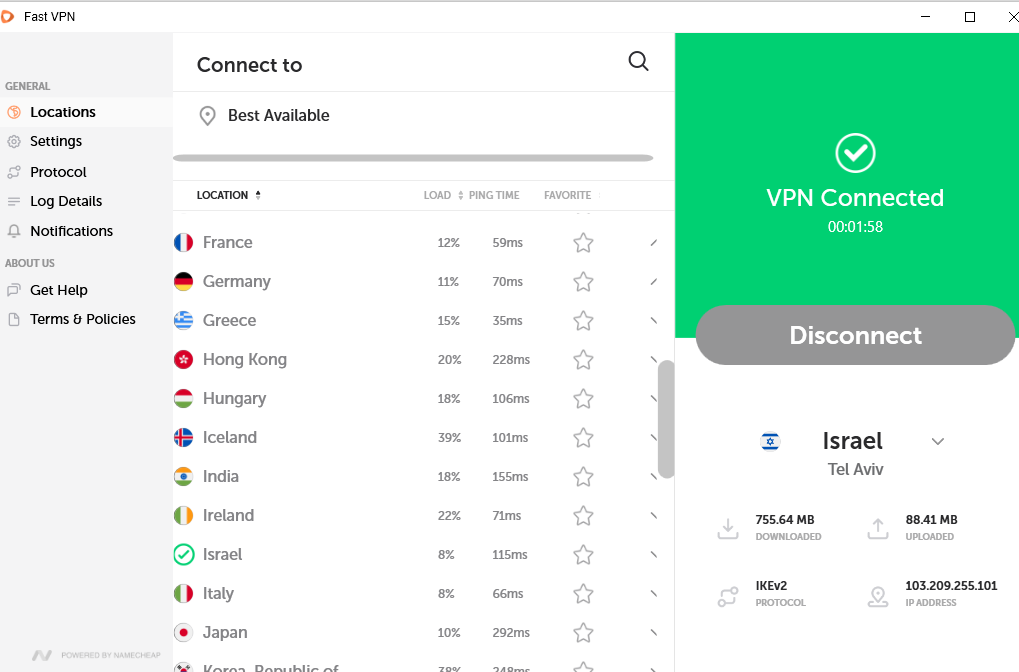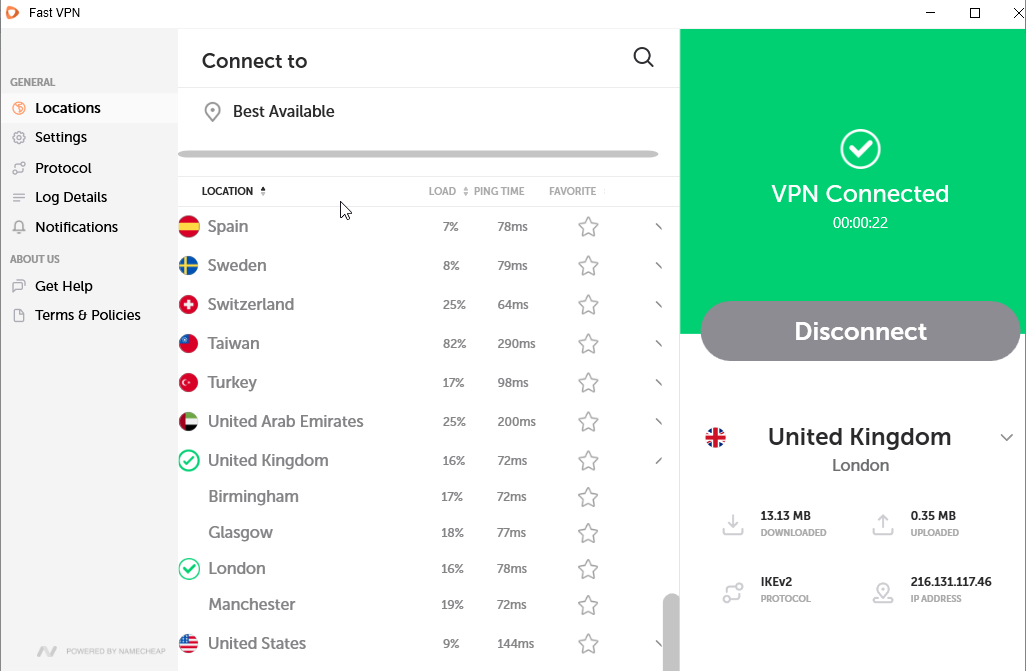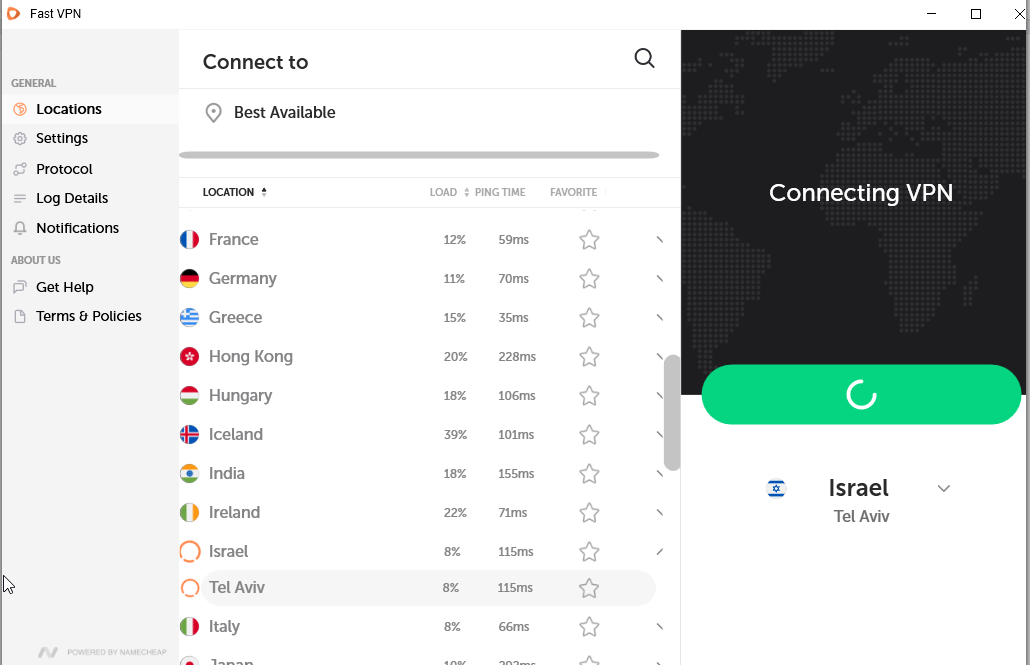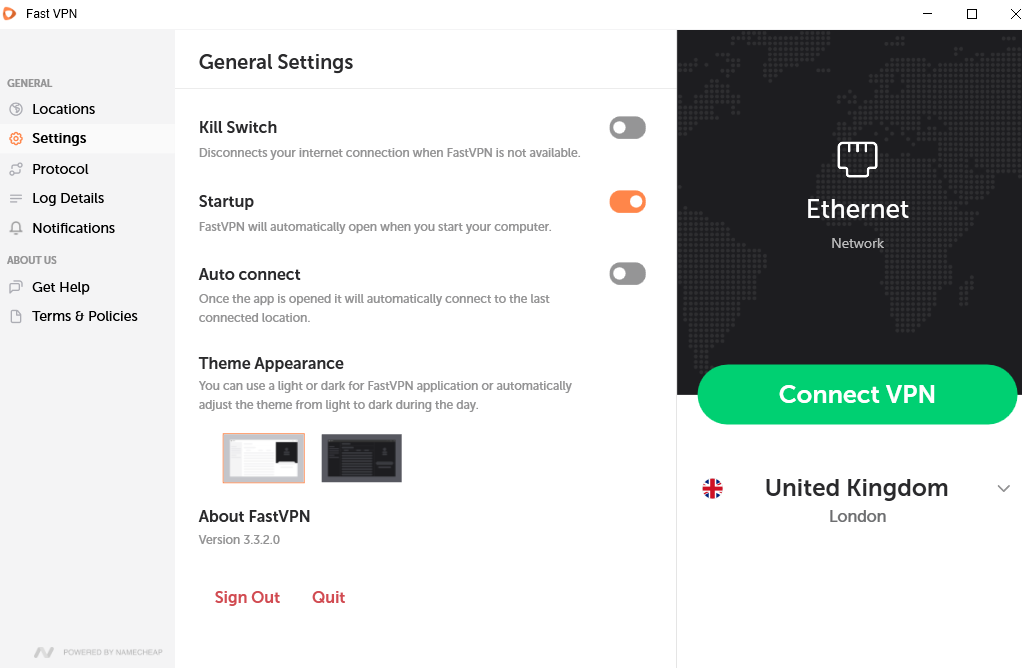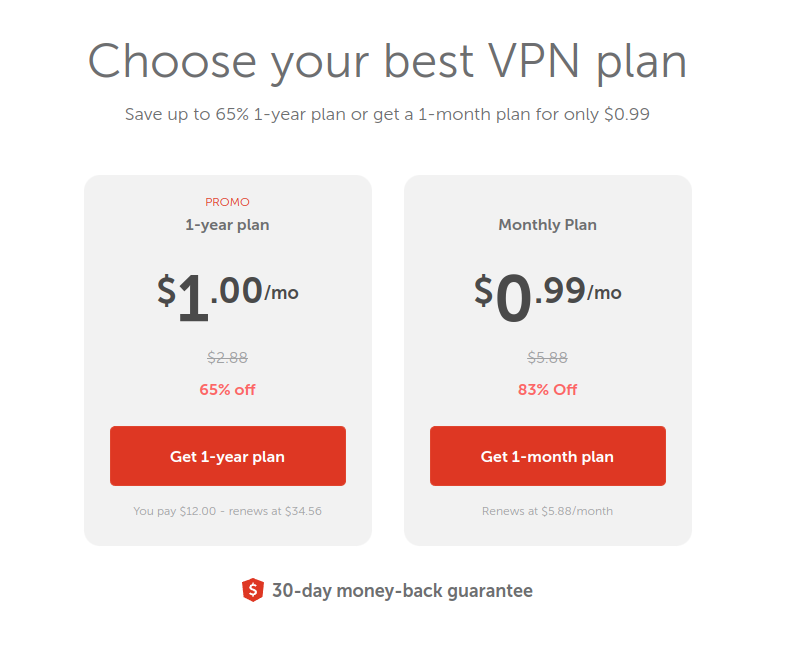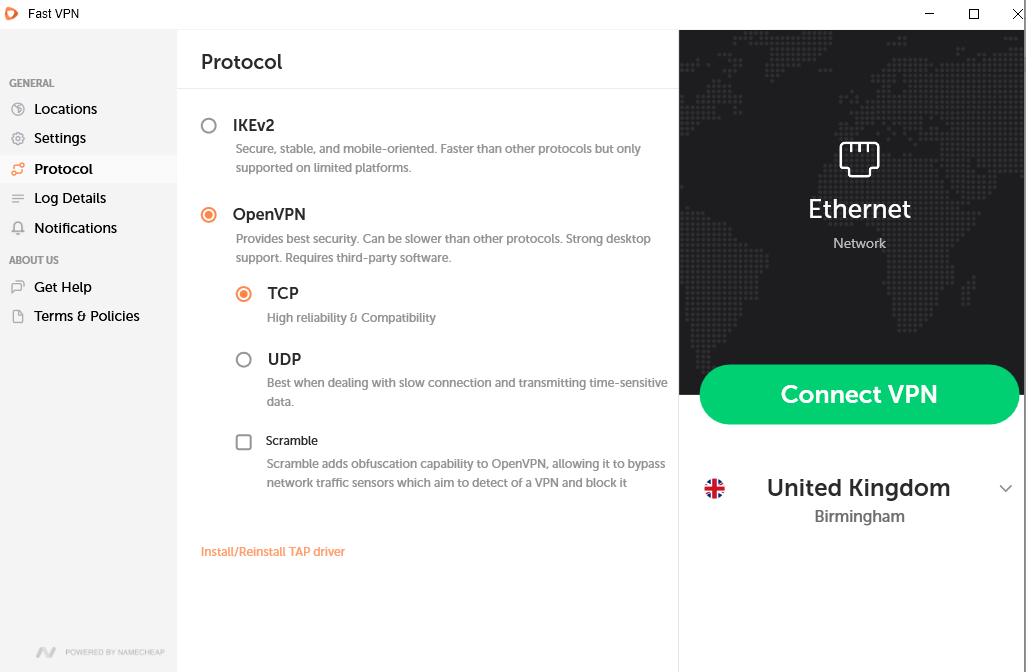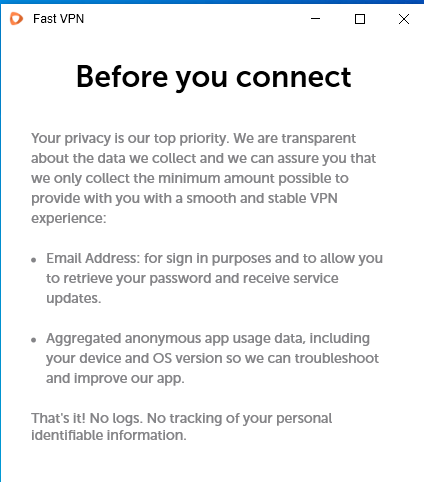Quick Links
FastVPN is a virtual private network under the umbrella of Namecheap, the domain name and hosting provider. It offers rock-bottom prices for the first year you sign up and great ease of use thanks to its friendly interface. However, the first question on my mind was whether it lives up to its name.
Unfortunately, I found that FastVPN is not very fast at all. Its speeds fluctuate so much that it's close to unusable at times. However, that doesn't mean it's a total loss; there is a very specific type of customer who may still get a lot of use out of FastVPN. Before I explain that, though, let's go over my speed tests.
Is FastVPN, You Know, Fast?
I ran speed tests for hours, and it's not since I did the PrivadoVPN review that I have seen speeds that oscillate this wildly. It's hard to recommend FastVPN for this reason: one moment it's above average, the other it very much is not; one thing it never is, though, is fast.
My base speed in Cyprus is a respectable 100Mbps, and connecting to servers in the U.K., which is only about 3,000km or 2,000 miles away, I got speeds ranging from 40MBps, which is okay, to about 6Mbps, which is very much not. Keep in mind that these measurements were taken in the space of just a few minutes. A closer server in Israel gave me an even 6Mbps, which is just terrible considering it's just a hop, skip, and a jump away.
To get an idea, a fast service like ExpressVPN or IVPN will only shave a few percent off a connection to Israel, and a few more to the U.K. What they won't do is lose 60% of speed to the U.K. and let that be the good reading.
Servers in the U.S. were also all over the place. One server in New York City got me 40Mbps, while another got me 7Mbps. For the fun of it, I connected to some random servers across the U.S. and I got wildly different readings. West Coast servers that gave me 30 to 50Mbps, East Coast servers that got me 5 or 6Mbps; it was a mess.
I'm not sure what is up with FastVPN's servers. While there is some fluctuation to be expected, you'd expect the highs and lows to be somewhat in relation to each other. These wild swings are just too much to handle for customers, even if they are only paying budget prices---more on that later.
It should be noted that I mainly tested speeds using FastVPN's default IKEv2 protocol. In an interesting twist, switching to OpenVPN actually gave me better results, which is beyond weird as IKEv2 is usually faster. I'm not sure what's behind that, but I recommend you switch to OpenVPN if you decide to purchase FastVPN.
What Can FastVPN Do?
You may wonder why you'd want to still buy FastVPN, what with the speeds being so sporadic. Well, it has a few things still going for it that may make it worth it, including its low pricing, which I'll get to in the next section. First, let's take a look at what it can do.
FastVPN has a really great interface. There are no two ways about it. Though it lacks the simplicity of ExpressVPN's UI (read our ExpressVPN review for more on that), I have a feeling people new to VPNs might appreciate something like FastVPN a little more as everything you need is right in front of you.
The screen is made up of three panes: the leftmost is the different entries, like locations, settings, etc. The middle is where those entries are displayed, in this case, the location list. The pane on the right is where you connect and disconnect the VPN, and where you can see some basic information about your connection.
I really like this setup as it makes it so you know what's going on at a single glance. The only thing I did find annoying is that to connect to a location, you need to click the country, tab down and find the city you want, and then click on that. Even if there's only one city in a country---which is most of them---you need to do this. You get used to it quickly, though.
Connections are made quickly, though there's a big difference when using IKEv2 or OpenVPN. IKEv2 is really fast, while OpenVPN takes a while---up to 20 seconds. I'm not sure why it takes this long since providers such as ExpressVPN and NordVPN do it a lot faster, but there you go.
FastVPN Settings
This simple, beginner-friendly approach can also be seen in the settings menu. There are only a handful of options, which is bad for people who like to tweak their VPN settings, but good news for those that just want the thing to work.
That said, we do find it sloppy that FastVPN has its kill switch off by default. Many may not know that you want this on almost all the time as it's an extra layer of protection in case the VPN fails, for whatever reason.
Watching Netflix With FastVPN
Before we move on to what FastVPN will cost you, there's one last important question whether it will help you get through to other countries' Netflix libraries. Well, it can, and it does. In fact, I tried ten servers or so in several countries and all except one got through to Netflix. That's a really good result.
Of course, the downside is that the crummy speeds mean your streams will be buffering a lot. Still, though, considering the price, it's a pretty good deal, especially if you just want something to do the odd bit of streaming and not much else.
FastVPN Pricing
This brings us to FastVPN's main selling point: It's cheap as chips, at least for the first year. The first time you sign up, you only pay $12 for a year, which is just ridiculously cheap. Though it's not the greatest VPN, its price makes it just about perfect for anybody that only needs to spoof their location now and again and not much else.
That said, after the first year, it reverts to its "real" price, which is $34.56 per year. That's still pretty cheap, but you'd be much better off signing up for Private Internet Access. Its three-year plan is only $2 per month and that price is permanent. Still, though, if you're a casual VPN user, you can't beat paying just a buck per month.
That said, if you're willing to spend even a little more, you can get much better VPNs. Mullvad and IVPN both offer better speeds and advanced privacy for $60 per year, while you could get a powerhouse like ExpressVPN for $100 per year. You could even try streaming with a dVPN, a new-fangled type of service that uses a pay-as-you-go model to save money.
Security and Privacy
Finally, let's go over the security and privacy of Namecheap. The overall verdict here is that both of these are fine, but I have a few lingering doubts, mainly because Namecheap, FastVPN's parent company, seems a little tight-lipped. I understand not wanting to swamp users with information, but Namecheap takes things in another direction.
For example, there's no clear information about FastVPN's security, so I kind of pieced it together by looking through the app and the site. Customers only have access to OpenVPN and IKEv2, both of which are among the best VPN protocols. I would recommend OpenVPN in almost all cases, especially since it seems to be faster when using FastVPN, with slow connection times notwithstanding.
IKEv2 is the default, though, and FastVPN doesn't seem to like it when you switch protocols as you need to install OpenVPN separately when you do. It's all managed by the app, but it's still a bit weird; you'd expect this to be included in the main installation package.
If you're a fan of WireGuard or more exotic protocols, FastVPN is very much not for you as it simply doesn't have them. For those who just want cheap streaming, this won't be a problem, but more demanding users will want to look elsewhere.
Interestingly enough, there's no mention anywhere of the encryption used by FastVPN. Normally, VPNs like to shout from the rooftops how they're using "military-grade" encryption. That said, I assume both protocols use the default AES-256 encryption---though IKEv2 may use AES-128, there's no easy way to find out.
During testing, I ran IP leak tests a few times using ipleak.net, a site that checks the security of your connection. FastVPN came up clean as a whistle every time.
FastVPN and Your Privacy
The upshot is that it looks like you're safe when using FastVPN. However, that still leaves the question of how the app and by extension Namecheap itself are treating your data. Again, the documentation is pretty tight-lipped, just saying it does not log and that's it.
There's a privacy policy that covers all of Namecheap's services, as well as the terms of service for FastVPN. There's also a popup when you start the app for the first time.
As with all claims of no-log VPNs, you're taking all this at face value. The good news is that Namecheap and FastVPN don't have their names attached to any scandals involving users' data, which hopefully means they're above board. On the flip side, though, the density of the TOS makes me a little uncomfortable.
Having your privacy policy take up reams upon reams of paper doesn't necessarily inspire confidence, but having a few boilerplate mentions isn't all that, either. Overall, I would say you're good to use FastVPN if you're worried about privacy, but the company could do a little better in guaranteeing that beyond claiming it's "a leader in online privacy rights."
Should You Subscribe to FastVPN?
FastVPN isn't very fast. However, thanks to its interface and pricing, it's perfectly placed to take on one segment of the VPN market: those that want to stream for cheap---and don't mind the odd buffering screen. Anybody else probably won't enjoy using FastVPN all that much.
Should Namecheap fix the speed issues, though, FastVPN could very well be a contender for our best VPN awards. Till then, though, it will have to languish in the bargain bin.
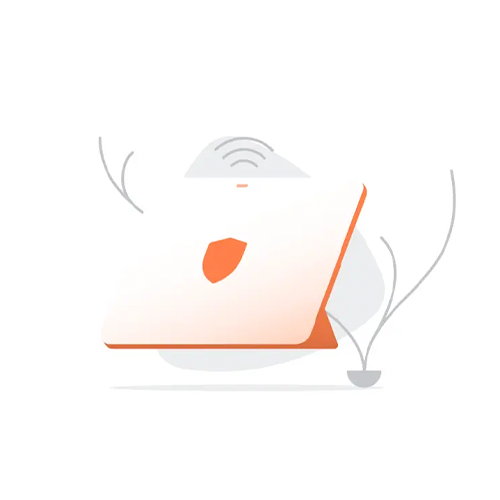
FastVPN
- Very inexpensive
- Easy-to-use user interface
- Unreliable and fluxuating speeds
- Some odd quirks

